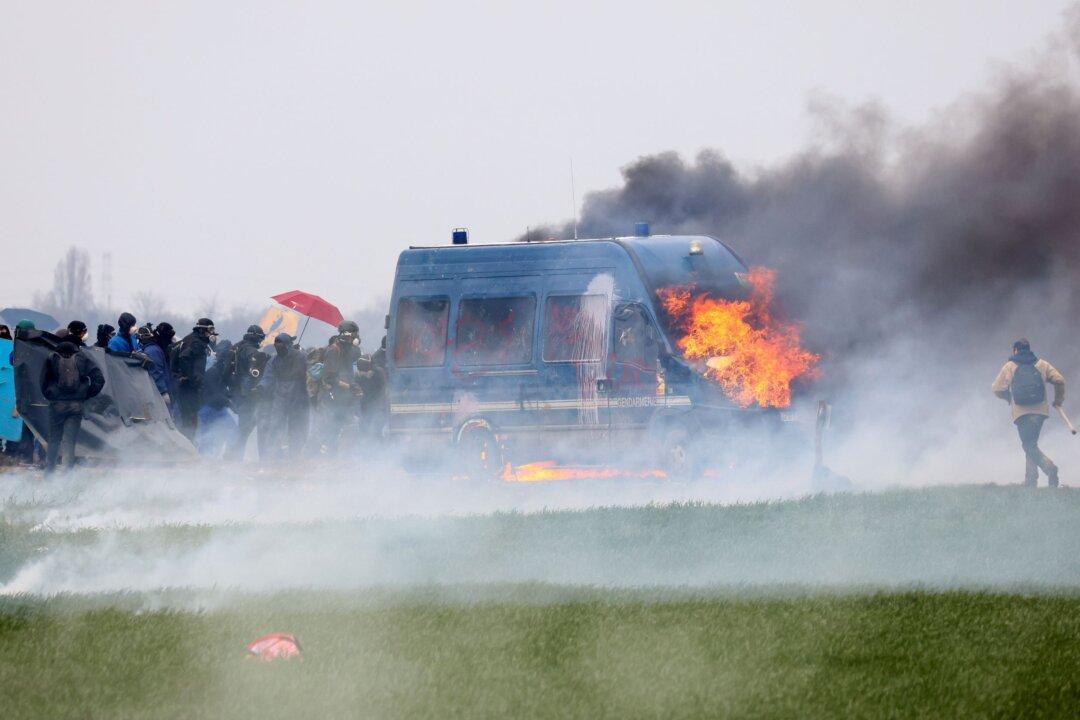SAINTE-SOLINE, France—Several people were injured on Saturday following clashes between French police and protesters opposed to a large water reservoir for farm irrigation, despite a ban on gatherings in the area.
Police fired tear gas to repel some protesters who threw fireworks and other projectiles as they crossed fields to approach the construction area in the western rural district of Sainte-Soline. At least three police vehicles were set alight, television footage showed.





